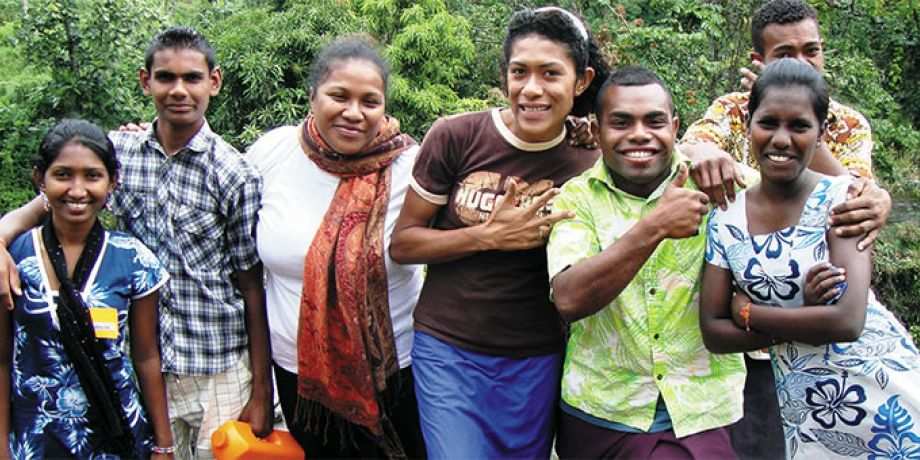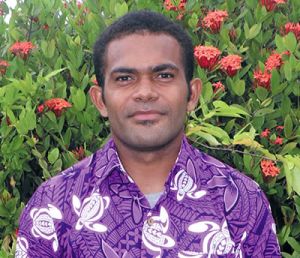
Inspiring Others
Returning home for a seminary break is interesting. I usually see it as a great time for relaxation and enjoyment. But I have discovered that it is more than that. My first surprise was when, on the first Sunday I was at home for the long Christmas holidays, the catechist in his homily in the village church said, “Elia, your coming home for holidays is a source of encouragement and strength for me.” I took that lightly considering it just a polite compliment, but when I was back in formation and reflected on my holiday, his words had a deeper impact on me.
Camping with the Youths

I noticed six or seven youths gathering around my house soon after I arrived in my village of Koromakawa in Labasa parish, Fiji. My parents noticed it too. They said that no youths came around when I was away and that I must be the attraction. The youths came camping with me to our gardens a few miles from the village. During the day we weeded the crops or sowed new seedlings. In the evenings we divided into work groups. One group would prepare food for cooking, another would get the log fire going, and the third group would do the cooking.
At night after dinner we used to share a basin of yaqona (our traditional social drink) and chat. They would ask me about the seminary and the formation program. The length of it shocked them. I explained how we studied the books of the Bible and the doctrines of the Church. At the same time, we attended daily Mass, did daily meditation, and prayed the rosary and the divine office or breviary in our Columban formation house.
I described our weekly pastoral practice. We visited ethnic Indian families or poor indigenous families in squatter settlements and encouraged them to form Christian communities by weekly Gospel sharing. We have regular personal sharing with our formator and spiritual direction with another priest. We play games and plant root crops there too. The youths asked many questions and were really interested in a life that seemed very different from theirs. They were fascinated that I have grown in confidence through these activities.
The Holy Spirit in Everyday Things
In my opinion, we men are not as good as women at sharing our feelings, discussing important matters or deepening our relationships. We normally compete on macho things like how late we can stay up drinking yaqona or how well we can play rugby. We tend to joke and tease each other.
In our nightly sessions I stressed to my village friends their worth and dignity as humans. I advised that they would not always be youths free from responsibilities. The time would come to get married. They would then need to look after their families and elderly parents. Now was the time to dream about the future and how to fulfill their responsibilities. I asked them to think about the land resources they have and the good living that can be made from growing and selling yaqona, not just drinking it! They began to talk about goals for themselves.
I see now how the Holy Spirit works in the little things we do and in our personal sharing with others. The Holy Spirit doesn’t just influence us within the four walls of the church but in our daily interactions.
I was surprised again when, the day before I was due to return to the seminary, the youths invited me to a going away party. I had not realized how they had appreciated our chat sessions. So holidays are for relaxation, but they can also be rewarding and fruitful in ways that we might not anticipate.
Originally from Fiji, Elia Poasa (pictured below) is a Columban seminarian.